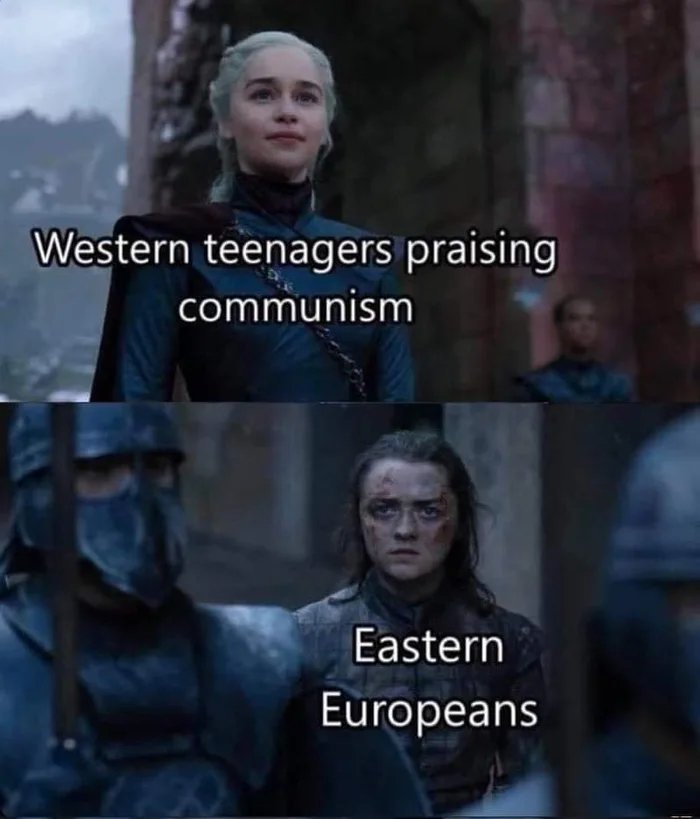this post was submitted on 22 Jul 2023
1417 points (77.7% liked)
Memes
45995 readers
2469 users here now
Rules:
- Be civil and nice.
- Try not to excessively repost, as a rule of thumb, wait at least 2 months to do it if you have to.
founded 5 years ago
MODERATORS
you are viewing a single comment's thread
view the rest of the comments
view the rest of the comments

So the first thing to consider is that anarchy is a very diverse field of thought, so there isn't one answer to questions about it.
An anarchist society faced with violence from outsiders could:
Remember that an attacker wants something. If they aren't getting what they want out of a conflict, or if the costs are greater than what is gained, they are likely to stop pursuing it. Anarchist communities likely have different values, and resource extraction is the most likely reason to attack such a community; making it extremely difficult or impossible to do that is something an organized community can achieve.
Think about Vietnam; while Vietnam was and is not anarchist or non-hierarchical, a decentralized military strategy with deep support from the population led to victory over a technologically superior invader. For an example closer to anarchy, you can read up on the Zapatistas, who employed decentralized resistance to the Mexican government and won.
Last, I want to add that the above is more or less true of any community or country that is attacked by a larger force, whether they are communist, or capitalist, or stateless. Economic and social structure are not going to protect any group from being attacked, and doesn't guarantee victory no matter how organized the defense may be.
What do you mean by "transitive"?
Note that one of the merits behind an effective modern army is its ability to maintain regular troops that are trained, equipped, drilled and rotated with a reserve on a regular basis - something that's usually achieved with a centralized form of organization and is backed by resources that in the current day are provided by a state. What's the plan on providing modern weaponry, persistent intelligence, as well as infrastructures for logistic, communication, ordinance etc' for a militia that's "transitive" by nature? who's going to keep an eye on those resources and make sure they don't breed power tripping warlords, terrorists or even simple crime organizations? what's the plan on keeping track of munitions and deadly weapons after the militia is disbanded?
Highly effective to a degree and can still be bleed-out, toppled or at the very least kept under control with a more organized army. Also decentralization can easily turn to feudalism with armed groups if they start going against each other for whatever reason, such as in the case of political subversion exploiting inherit weaknesses in a non-centralized structure (divide and conquer, etc').
What's a nonviolent resistance going to do to a threat actor who's eventual plan is political subversion and/or an incursion? why would they give a s*it as long as the war-effort on their side goes uninterrupted by the target or their allies until they decide to escalate?